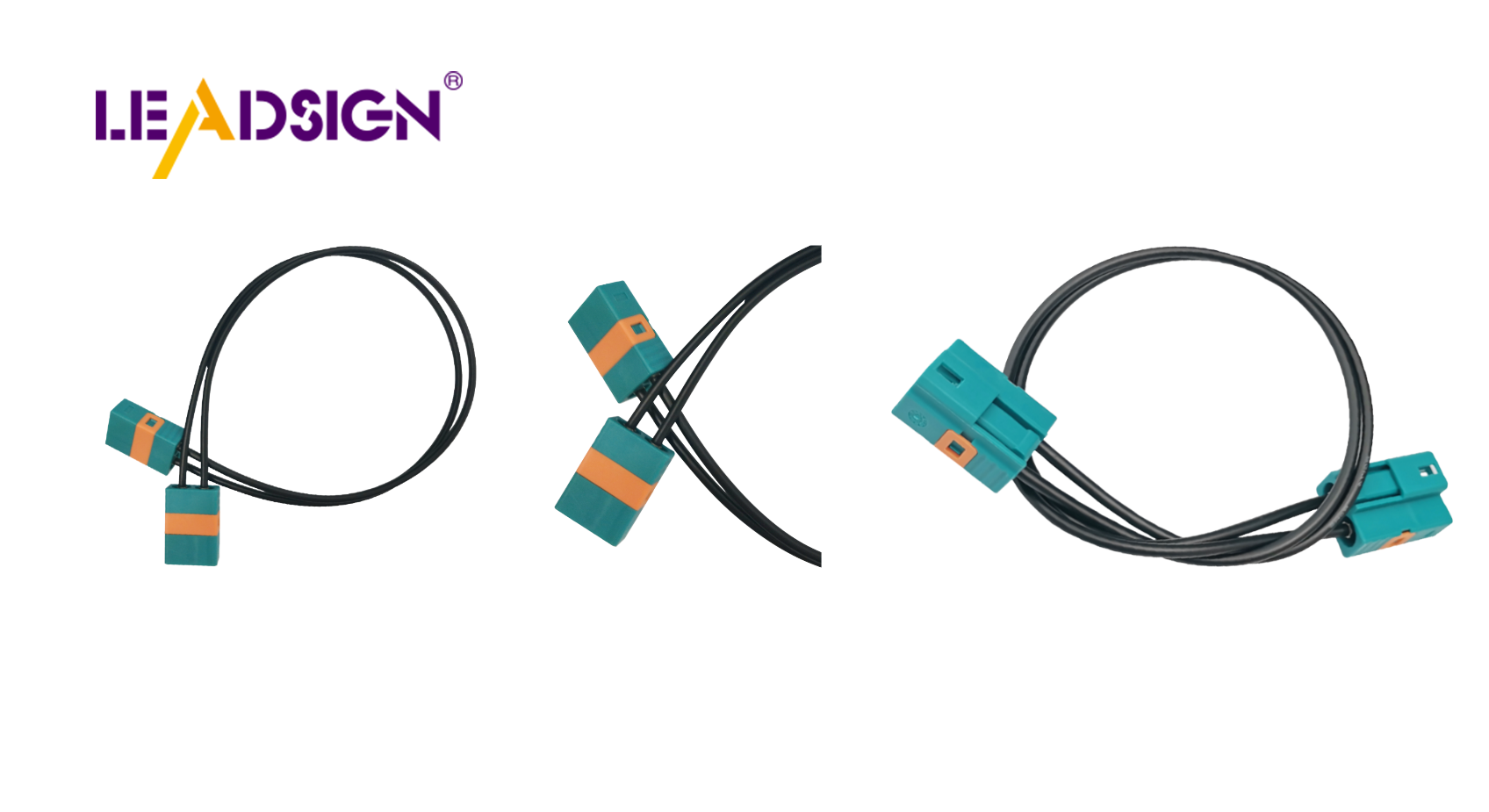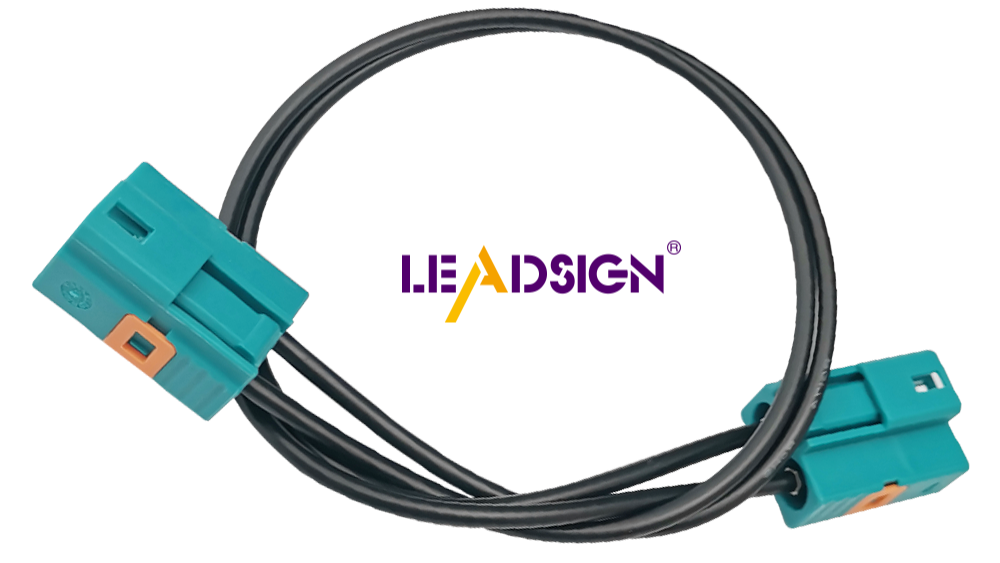Comprehensive Guide to Vehicle Connectors

Waterproof car connector plugs are important for your car's wires. They keep connections safe and working, even when wet. These plugs stop water from harming your car's wires, preventing expensive fixes and helping your car last longer. Waterproof car connector plugs are key for keeping your car working well. They help you feel confident that your car's wires are safe from the weather.
Key Takeaways
Waterproof connectors are essential for protecting your car's electrical system from water damage, preventing costly repairs and extending the lifespan of your vehicle.
Choosing the right connector involves considering compatibility with your car model, the durability of materials, and appropriate protection ratings to ensure optimal performance.
Regular maintenance, including inspections and cleaning, is crucial for keeping connectors in good condition and preventing issues like corrosion and loose connections.
Using silicone grease on connectors enhances their waterproofing capabilities, further safeguarding against rust and ensuring reliable electrical connections.
Proper installation of car connector plugs is vital; follow safety tips and use the right tools to ensure secure and effective connections.
Be proactive about replacing connectors that show visible damage or frequent failures to maintain your car's electrical efficiency.
Understanding the different types of connectors available allows you to make informed decisions that enhance your car's performance and reliability.
Car connector plugs are very important for your car's electrical system. They help all parts talk to each other and send power and data where needed. Knowing about these connectors helps keep your car working well.
Car connector plugs are where electrical connections meet in your car. They let different car parts work together. These connectors make sure power and signals move smoothly between things like lights and sensors. With car connector plugs, you can easily take apart and put together parts without hurting the wires, making fixes and upgrades easier.
Waterproof connectors keep your car's electrical system safe from water and other things. They come in different types for different uses.
Sealed connectors block water and dust well. They are great for tough spots like engine areas. Bulgin Buccaneer waterproof connectors are popular because they are reliable and easy to use. They have many power and data choices to fit your needs.
Unsealed connectors are good for places with little moisture. They are easy to install and save money. They don't protect as well as sealed ones but work fine in safe places.
Specialty connectors are for special needs, like high-frequency uses or certain car models. Higo connectors are known for being waterproof and are used in factories. These 'M8' connectors are easy to find and protect well against water.
By knowing about different waterproof connectors, you can pick the right one for your car. Whether you need sealed, unsealed, or specialty connectors, each type has benefits that help your car's electrical system.
Benefits of Using Waterproof Connectors

Waterproof connectors are very important for your car's electrical system. They help your car run well and smoothly.
Keep Water Away from Electrical Parts
Waterproof connectors stop water from reaching electrical parts. They protect against water damage, which can cause problems like short circuits. These connectors have seals and clean themselves, so they work well even when wet.
Stop Rusting
Rust can harm your car's electrical system. If water gets in, it can cause rust and bad connections. Waterproof connectors keep water and rust out. This keeps your car's wires working well for a long time.
Better Electrical Work
Waterproof connectors make your car's electrical system work better. They keep connections strong, so there's no power loss. They also stop water and dirt from causing problems. Using silicone grease on them helps keep water out even more.
Picking the Best Car Wire Connectors
Choosing the right car wire connectors is very important. It helps your car's electrical system work well. Think about a few things to pick the best ones.
Fit with Car Models
First, make sure the connector fits your car model. Cars have different electrical systems. Not all connectors fit every car. Check your car's details or ask an expert to be sure. This stops wrong matches that can cause problems.
Strong Materials
The material of connectors matters for how long they last. Pick connectors made from strong stuff. They should handle tough conditions. Expert advice says to think about heat, wetness, or bad liquids like brake fluid. Strong materials help connectors last and stay connected.
Protection Ratings
IP ratings show how well connectors keep out dust and water. Pick connectors with the right IP ratings for where they go in your car. If they face weather, they need high IP ratings. Knowing these ratings helps you pick connectors that work well and meet rules.
By thinking about these things, you can pick car wire connectors that make your car's electrical system better. The right connectors help your car work well and stop expensive fixes.
How to Install Car Connector Plugs
Putting in car connector plugs right helps your car's electrical system work well. This guide shows you the tools, steps, and safety tips for easy and good installation.
Tools You Need
Before starting, get these tools ready:
Wire cutters
Crimp tool
Screwdrivers (flat and cross)
Heat shrink tubes
Silicone grease
Electrical tape
Multimeter for checking
These tools help you put in the wire connectors and keep them safe from harm.
Steps to Install
Getting the Car Ready
Turn Off Power: Make sure the car is off to stay safe.
Find the Wires: Look for where to put the plugs. You might need to take off covers.
Check the Wires: Look for worn or rusty wires. Change bad wires first.
Hooking Up the Plugs
Cut Wire Ends: Use cutters to take off half an inch of wire cover.
Attach Connectors: Use a crimp tool to fix connectors to wires. Make sure they are tight.
Add Grease: Put silicone grease on connectors. This keeps them dry and rust-free.
Securing and Checking
Secure Wires: Use heat tubes and tape to hold wires. This keeps them safe from weather.
Check Connections: Use a multimeter to see if wires work right.
Put Back Covers: When done, put back any covers you took off.
Safety Tips
Work where air moves to avoid breathing in grease fumes.
Wear gloves to protect from sharp tools or wires.
Check all wires before turning the car back on.
By doing these steps, you can put in car wire connectors well, keeping your car's electrical system strong and working.
Maintenance and Troubleshooting
Taking care of your car's connectors is very important. Regular checks and fixing problems quickly can stop issues and make your car's wire connectors last longer.
Regular Maintenance Practices
To keep connectors working well, do these things:
Inspect Regularly: Look at connectors often for damage. Check for cracks, color changes, or loose parts. Finding problems early helps a lot.
Clean Thoroughly: Dirt can build up on connectors and cause problems. Use a soft brush or air to clean them. Don't use water; it can cause rust.
Apply Grease: Use silicone grease on connectors. This grease keeps water away and stops rust, helping them work smoothly.
Secure Connections: Make sure connectors are tight. Loose ones can cause failures and short circuits.
Common Issues and Solutions
Even with care, you might face common connector problems:
Corrosion: Water can cause rust, hurting connectors. If you see rust, clean it and use grease to stop more damage.
Loose Connections: Driving can shake connectors loose. Check and tighten them often to keep them stable.
Damaged Wires: Wires can wear out or break. Replace bad wires quickly to avoid problems.
When to Replace Connector Plugs
Knowing when to change connectors is key for your car:
Visible Damage: If you see cracks or rust, change the connector plug.
Frequent Failures: If problems keep happening, think about changing connectors. This can fix issues and make things better.
Age and Wear: Connectors get old. If your car is old or used a lot, check connectors often and change them if needed.
By doing these maintenance and troubleshooting steps, your car's wire connectors will stay reliable. Regular care keeps your car running well.
Waterproof car plugs are important for your car's wires. They keep water out, stop rust, and help things work better. Using good car wire connectors makes sure they fit well and last long. These connectors are easy to care for and can be used in different ways. They are a smart pick for car owners. Think about getting these strong connectors to keep your car's wires safe and feel good while driving.
FAQ
How do pigtail connectors help a car work well?
Pigtail connectors link different car parts. They power things like lights and safety systems. These connectors keep your car's electrical parts working smoothly.
What kinds of connectors do car makers use?
Car makers use many connector types. Some are circuit boards, round, rectangle, and charging connectors. Each type fits certain car parts.
Why use OEM car connectors?
OEM connectors match a car's exact needs. They fit perfectly and work well. This helps your car's electrical parts last longer.
Why are car electrical connectors important?
Car connectors keep parts connected. Sensors and switches need them to talk to each other. This helps the car run smoothly.
How do waterproof connectors protect car wires?
Waterproof connectors stop water from reaching wires. They prevent short circuits and rust. This keeps your car's electrical system safe in bad weather.
See Also
Understanding Ford Fakra Connectors: A Complete Overview
In-Depth Insights into HSD Connectors for Beginners
Fakra Connectors Explained: Benefits, Uses, and Setup Advice
Discovering Why Fakra Connectors Are Essential in Automotive
Enhancing Automotive Data Flow with Superior Connectors and Cables

